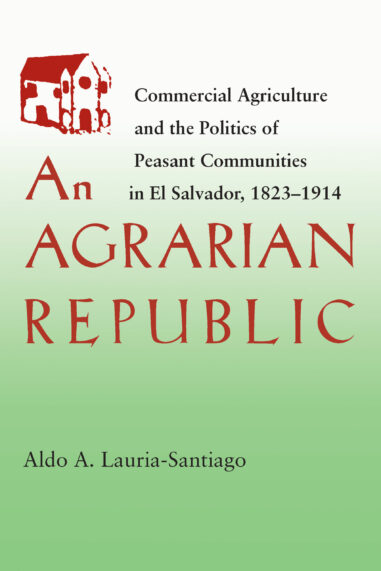

Paperback $55.00
Request Exam or Desk Copy. Request Review Copy
An Agrarian Republic
Commercial Agriculture and the Politics of Peasant Communities in El Salvador, 1823–1914
. . . Lauria's research in previously unavailable primary sources sheds light on transformations at the local level and in doing so, forces us to reconsider our understanding of the 'Liberal Reforms' of the 1880s. . . . This new perspective also challenges important myths in Salvadoran historiography such as the Indian rebellions at the end of the nineteenth century and the misnamed Communist revolt of 1932. In fact, standard works on state formation in Central America will have to be revised to incorporate this important contribution.

